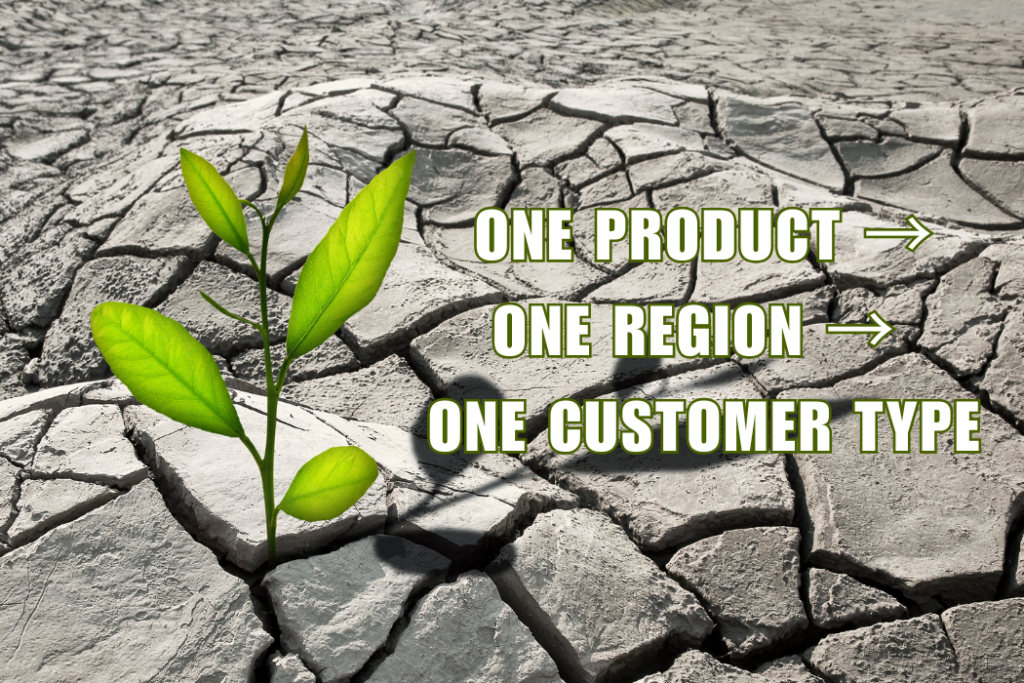Providing boots-on-the-ground expertise in the UK
The United Kingdom (UK) offers a highly developed and diversified market for U.S. exporters. It also serves as an entry market into the European Union (EU). On June 23, 2016, the UK voted to leave the EU during the Brexit referendum. The UK government then triggered the two-year exit process by invoking Article 50 of the Lisbon Treaty in March 2017, with a withdrawal date of March 29, 2019. The UK is now negotiating with the EU on the future trade and economic relationship.
Although the UK is in the process of leaving the EU, given the UK’s proximity to Europe and the high level of bilateral trade and investment – roughly half of the UK’s trade is with the rest of the EU – close economic and commercial ties are expected to continue between the UK and EU.
Below, John Simmons, senior commercial officer, U.S. Commercial Service, U.S. Embassy, London, discusses the latest trends and opportunities for U.S. exporters in the UK. His office is part of the Department of Commerce’s International Trade Administration (ITA) and its worldwide U.S. Commercial Service network. This network includes 100+ offices across the United States and in more than 75 countries, which helps American companies export.
Q: Why should U.S. companies consider doing business in the UK market if they aren’t already?
Simmons: The UK is the 5th largest U.S. export market for goods, and America’s top market for services, with combined U.S. exports totaling some $126 billion in 2017. The UK’s large services sector accounts for 75-85 percent of its economy, which translates into potentially large opportunities for U.S exporters. Most importantly, the UK shares a similar transparent business culture and common language with the United States, providing a business-friendly avenue for U.S. firms. Currently, some 43,000 U.S. companies now sell in the UK market. The UK is also the largest source of foreign direct investment in the United States. To sum up, ease of doing business and diverse industry opportunities make the UK an ideal destination for both new U.S. exporters as well as firms looking to expand into more markets.
Q: What are some industry sector opportunities for U.S. exporters?
Simmons: UK opportunities are really across the board. It has the world’s second largest aviation market, and home to major industries such as automotive, agriculture, medical technologies, and high technology products. The UK is also the sixth largest global construction market outside the United States. Financial and manufacturing-related maintenance and repair services are in high demand, as are cutting edge U.S. consumer-oriented products.
ICT-related products and services are also ripe for export to the UK. Cyber-security is booming, with the UK cyber market estimated at up to $15 billion. Cities across the UK are initiating smart cities initiatives to connect all facets of infrastructure through smart grid technology and the Internet of Things.
Tourism also remains an important industry. The UK ranks third in overall visitor arrivals to the United States and is a major overseas market.
Q: The UK is investing heavily in low-carbon technologies, what are some trends and sub-sector opportunities?
Simmons: That’s another significant growth sector with an upward trend. The UK is putting substantial efforts into reducing fossil fuel use and phasing out coal. A key priority is upgrading nuclear plants and expanding renewable technologies through the construction of wind and solar power projects. I would encourage U.S. suppliers to take a good look at the potential opportunities.
Q: In general, do you see good supply-chain opportunities for small and medium-sized U.S. firms in the UK?
Simmons: Yes, and I would say the engineering supply sector is a real standout because it ties in to so many different industries: construction, high-tech, manufacturing, energy, aviation and automotive, to name a few. The country also has an efficient transportation infrastructure.
Q: What trends do you see in the growing eCommerce market?
Simmons: We’re seeing lots of growth in eCommerce, with U.S. giants such as Google, Facebook, and Amazon active in the UK market. According to a report by Priority Fulfillment Services (PFS) in 2016, the UK eCommerce market was the strongest in Europe and the third largest in the world, reaching $99 billion in 2015, and was projected to reach $132 billion in 2018.
The UK has the lead in Europe in data centers. I mentioned the growth of cyber security, and our office is getting many requests from small and medium-sized Silicon Valley companies looking to promote their technologies and services throughout the UK. So, there are good opportunities, but also stiff competition.
Q: Among the other challenges in the UK market are local and 3rd country suppliers, how can U.S. firms best compete?
Simmons: U.S. companies new to the UK should be aware that Europe has a sophisticated manufacturing base, and other nations, including the Chinese, are making headway in competing in the telecom, consumer electronics, and other sectors. So, yes, it’s a very competitive market, but “Made in USA” products and after sales service are highly regarded, which is a definite plus. To stay competitive, U.S. exporters need to offer differentiated products at competitive prices.
Q: Are there other subtle differences in ways of doing business (culture, etc.) that U.S. exporters should be aware?
Simmons: As mentioned earlier, the two countries’ business cultures are very similar. However, U.S. companies need to be aware of localized regulations, and sometimes it takes a bit longer to develop business relationships than in the United States. Also, there are some differences in policies and regulations among the various parts of the UK: England, Northern Ireland, Scotland and Wales.
Q: From your experience, are there common “lessons learned” from U.S. companies doing business in the UK?
Simmons: Yes, when you think of the UK market, don’t limit yourself to just London. There are good opportunities throughout the entire country. Although the UK geographically is relatively small, (about the size of Oregon) it has some 64 million consumers all of whom can have a great appreciation for brand-name U.S. goods and services.
Q: With the recent vote on Brexit, has anything changed for U.S. exporters? How can U.S. firms best prepare for the future?
Simmons: Although the UK is in the process of leaving the EU, close economic and commercial ties are expected to continue between the UK and EU. The biggest thing for U.S. companies is to stay abreast of ongoing developments. The Commercial Service is closely monitoring the Brexit negotiations.
Q: What are your best tips for U.S. exporters, including how best to enter the UK market?
Simmons: Several tips come to mind:
- U.S. businesses should monitor what’s happening with the UK-EU post-Brexit negotiations. Also, be aware of the EU’s new data privacy law – the General Data Protection Regulation (GDPR) (see box below).
- If you have a good proposition and value proposal for your product or service, that’s a great start for doing business in the UK.
- Evaluate prospective partners carefully and choose an experienced, well-established local distributor. Be flexible working with a UK partner.
- Visiting the UK, probably more than once, to meet prospective partners and customers is a sound strategy, as British businesspeople tend to want to get to know with whom they are doing business.
- Do your research by visiting export.gov. On the site, you can find our Country Commercial Guides, and UK market video. You can also contact your nearest U.S. Commercial Service office, or our U.S. embassy in London. Our trade experts can provide you with a “roadmap” to exporting through our many services which include export counseling, business matching, market intelligence, trade show support, and much more.
| What should U.S. exporters understand about EU data privacy rules The European Union (EU) is an important market for many U.S. businesses, and U.S. firms transferring personal data from an EU country or processing personal data of an EU person may be subject to the new EU data protection requirements. The General Data Protection Regulation (GDPR) authorizes fines of up to four percent of the company’s global revenue or up to 20 million euros (US $23 million), whichever is higher. It applies to firms without a presence in the EU if they are processing EU person’s data and are offering goods or services related to such data or are monitoring EU person’s behavior. Certifying to the EU-U.S. Privacy Shield Framework through the U.S. Department of Commerce can help ensure that data transfers from the EU comply with GDPR requirements. For further information on GDPR requirements and privacy shield, visit export.gov, and www.privacyshield.gov. |













